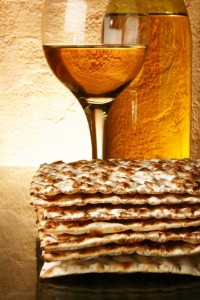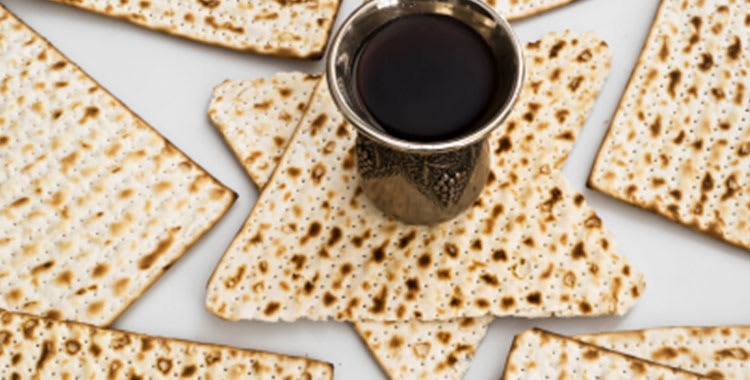 It’s that time of year again- the holiday season. Perhaps nothing is more challenging than getting through Pesach with your health and weight intact. As daunting and challenging as this may seem, a few little tricks and just a little self-discipline can get you through virtually unscathed.
It’s that time of year again- the holiday season. Perhaps nothing is more challenging than getting through Pesach with your health and weight intact. As daunting and challenging as this may seem, a few little tricks and just a little self-discipline can get you through virtually unscathed.
There are essentially three areas where we all tend to get into trouble: 1. The amount of food we consume sitting at our tables during our festive meals 2. The types of foods we eat and 3. The general lack of activity and exercise during Pesach.
Let’s first look at the portion control issue. It seems that during the holiday celebrating our transition from enslavement to freedom, we manage to enslave ourselves to many unnecessary calories. There is a mitzvah to eat certain foods during the Chagim, such as matzah. There is no mitzvah, however, to consume mass quantities of anything. To keep a handle on the overeating problem, try this. Take a reasonable portion on your plate and if you are truly still hungry after you eat what’s on your plate, take seconds of a cooked or raw vegetable or fruit. (If you are permitted to eat legumes, take a brown rice dish). Remember that drinking water may also make you feel full so drink up before you start your meal. And for all you matzah lovers out there, remember that although we are commanded to eat matzah on Pesach, we are not commanded to eat mass quantities of it for the entire length of the Chag!
As for the kinds of food we eat, everyone can make some subtle but significant adjustments in this area, as well. Even though meat and chicken dishes are more popular at this time of year, you can trim the fat from your meat and order lean cuts to begin with. Remove the skin from chicken and turkey, preferably before cooking, and keep in mind that the white meat is much leaner than the dark meat. Also, keep the emphasis on vegetables and try to use whole grain matzah. For dessert, go for fresh fruit salads, melons and sorbets instead of cake and cookies, which are loaded with sugar and fat. Also, keep in mind that most pareve ice cream contains chemicals and high-fat based whips.
Item number three- lack of activity. No, do not go out to do an exercise session during the Seder! But don’t sit around either. Nice long, brisk walks, particularly after your meals, are a great idea. There is nothing worse than throwing yourself into metabolic rigor mortis by falling asleep immediately after a meal. When you are finished with the walk, stretch a little and then you can take your nap.
LOSE IT! Registered Dietician Jennifer Racz offers an easily incorporated set of tips to help you stay on track. First and foremost she writes, “Don’t skip meals – especially right before the Seder. Make sure you eat a healthy breakfast and a light meal before the Seder. Remember: you will not eat your Pesach meal until late, and if you are very hungry, you may overeat at the Seder meal and/or nibble on too much matzah.” (see TIPS box)
Additionally, it is always important to count your calories, and Pesach is no exception. Here are some basic exchanges between chametz items and Pesachstaples, courtesy of Lose It! Certified Nutritionist Elisheva Rosenberg.
1 square matzah = 2 breads
1 round matzah = 3 breads
2 tablespoons of matzah cake meal = 3 breads
2 tablespoons matzah meal = 3 breads
5 oz. of wine = 125 calories
Matzah Brei
1 matzah = 2 breads
1 egg = 1 protein portion
1 tsp healthy oil/butter = 1 fat
“Acharei HaChagim”- How many times do we hear that phrase during the year? If you want to plan something for after the Chagim now, set up an appointment for a lifestyle, health and fitness assessment. Make an appointment now for after Pesach with a trainer at your local gym. No more excuses! Plan now so that after Pesach you are committed and ready to take on a program that can change your health and change your life!
This is a time of year to be joyful, happy and celebrate together with our families. We need not create more stress in our lives than we already have. Instead of saying, “After Pesach,” resolve to get started with good and healthful habits right now. Watching serving sizes, eating healthy choices, and staying as active as possible over the Pesach holiday are all ways to <em>“add hours to your day, days to your year and years to your life.”
Alan Freishtat is an A.C.E. CERTIFIED PERSONAL TRAINER and a BEHAVIORAL CHANGE and WELLNESS COACH with over 19 years of professional experience. Alan is the creator and director of the “10 Weeks to Health” program for weight loss. He is available for private coaching sessions, consultations, assessments and personalized workout programs both in his office and by telephone and skype. Alan also lectures and gives seminars and workshops. He can be reached at 02-651-8502 or 050-555-7175, or by email at alan@alanfitness.com Check out the his web site –www.alanfitness.com US Line: 516-568-5027.
The words of this author reflect his/her own opinions and do not necessarily represent the official position of the Orthodox Union.

